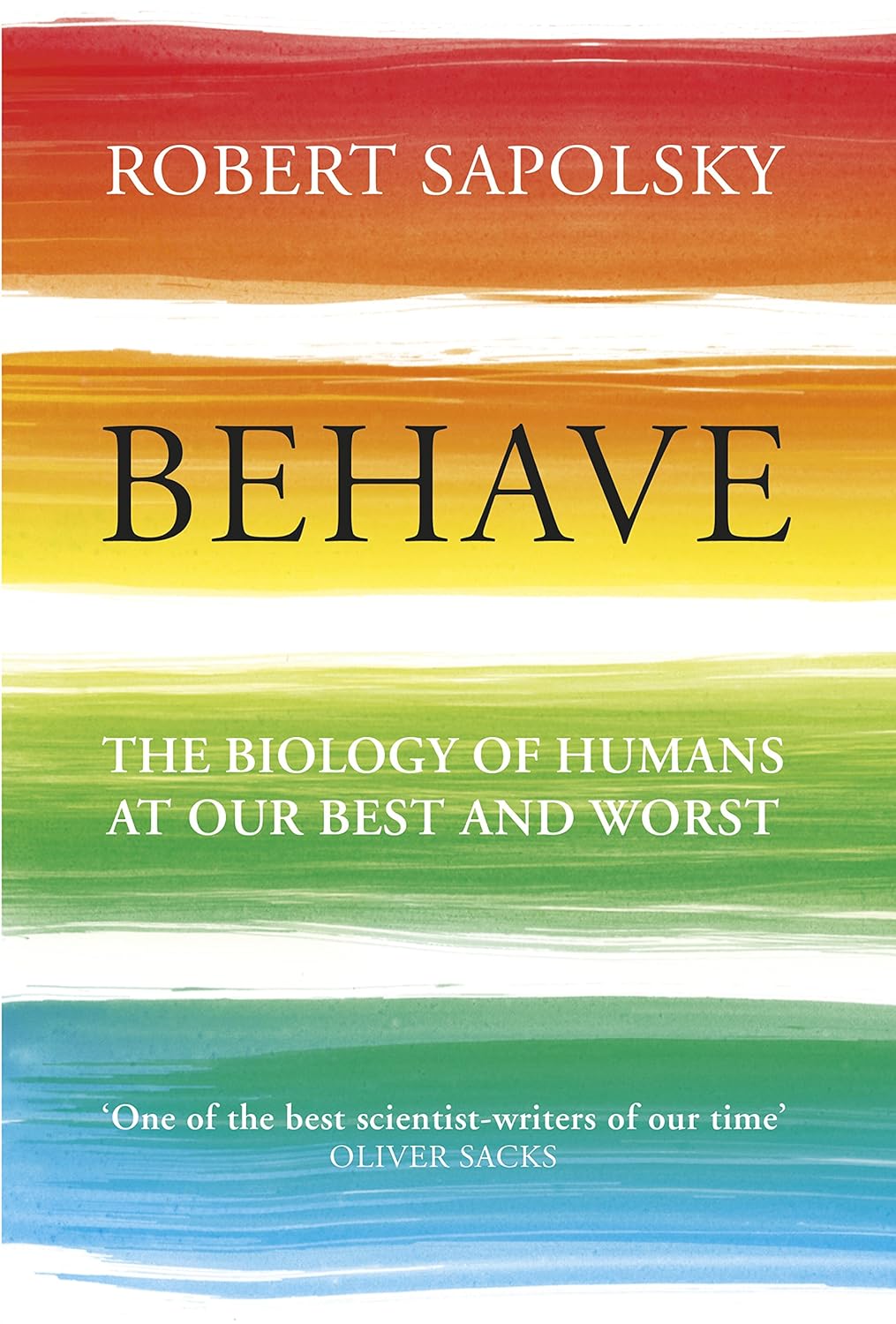
Behave: The Biology of Humans at Our Best and Worst
FREE Shipping
Behave: The Biology of Humans at Our Best and Worst
- Brand: Unbranded

Description
Josh Greens is tragedy of the commons versus tragedy of the common sense of morality were acting morally towards an ass is automatic while doing so for a them text work. This is the exhilarating story of human morality and the science underpinning the biggest question of all: what makes us human?
A great writer and a superb guide to human nature, Sapolsky shows you how all the perspectives and systems connect, and he makes you laugh and marvel along the way. A beautifully crafted work about the biology of morality Jonathan Haidt, author of The Righteous Mind Ho Chi Minh rejected the offer Chinese troops on the ground during the Vietnam War saying that the Americans will leave in a year or a decade but the Chinese will stay for a thousand years if we let them in. As such, I hope to bring you a lot of value by doing these books summaries, which will also be available on my podcast. i109947952 |b1240051900109 |dssbnf |g- |m231205 |h23 |x1 |t6 |i22 |j7 |k170509 |n11-08-2023 17:16 |o- |a612.8 |rSAPSapolsky's work has been featured widely in the press, most notably in the National Geographic documentary Stress: Portrait of a Killer, [25] [26] articles in The New York Times, [27] [28] Wired magazine, [29] the Stanford magazine, [30] and The Tehran Times. [31] His speaking style (e.g., on Radiolab, [32] The Joe Rogan Experience, [33] and his Stanford human behavioral biology lectures [34]) has garnered attention. [35] Sapolsky's specialization in primatology and neuroscience has made him prominent in the public discussion of mental health—and, more broadly, human relationships—from an evolutionary perspective. [36] [37] In April 2017, Sapolsky gave a TED Talk. [38] [39] Meanwhile, compatibilists, by definition, have already made their peace with the idea that everything is fully caused, and insist it’s no threat to free will. So Sapolsky’s insistence that everything is really, really fully caused seems unlikely to trouble them. Perhaps there are people who believe free will hides out in some part of the brain not yet charted by scientists. If so, this book will set them right. But in philosophy, at least, that isn’t a common view. There are excellent examples: eg: when you compliment a child on good work, telling them they are clever vs telling them they are hardworking invokes very different responses. While we appreciate empathy – the ability to step into and feel the others experience, empathy stalls action. Compassion is more effective. The discussion around how the brain responds to meditation are alluded to – though I think it deserved far more coverage. There are also other interesting lessons around how judges and juries decide punishment based on a number of factors which logic says should have no bearing.
i110412461 |b32104000117511 |dpran |g- |m231130 |h14 |x4 |t1 |i6 |j2 |k170707 |n01-23-2023 22:03 |o- |aSCIENCE / Biology Culture is about ideas and symbols rather than mere behaviours in which they instantiate.Remarkably consistent finding starting with elementary school students is that males are better at math than females. While the difference is my know when it comes to considering average scores there is a huge difference when it comes to math stars at the upper extreme of distribution. 1983 for every girl scoring in the highest percentile on the SATs there were 11 boys. Steve Pinker failed to take things one logical step further in his book Enlightenment Now. He didn’t correct for different durations of events. He compares the half-dozen years of World War 2 with 12 centuries of the middle age slave trade! When correcting for duration as well as total world population the top 10 most violent wars now include World War 2, World War 1, the Russian Civil War now and another 20th Century event that didn’t even make Pinker’s original list, the Rwandan genocide.The book goes through the biology of behavior and describes what happens when we do something and how the body's various hormones and major neurotransmitters work to shape it. The book then goes into the genetic and evolutionary basis of our behavior and the ways we're predisposed to think about others specifically in groups and out groups. This topic is then expanded to talk about culture and hierarchies and our unique behavior as humans of killing over ideas. The book end with a discussion of neurology's place in law and how much culpability people actually have for their actions. There's an appendix at the end of the book for those not as familiar with neuroscience or hormones and proteins of the body.
- Fruugo ID: 258392218-563234582
- EAN: 764486781913
-
Sold by: Fruugo
